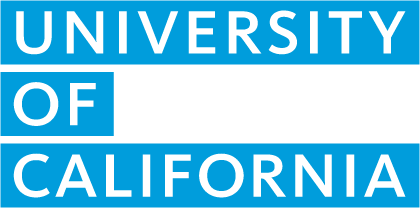History / Social Science
Course Criteria & Guidance
All courses approved for the history/social science (A) subject requirement will expose students to primary sources and secondary literature, and promote critical thinking and questioning regarding historical events and perspectives.
Course Content Guidelines
Courses meeting the history/social science (A) subject requirement will do at least three of the following:
- Examine how and why societies change and the different ways (economic, political, cultural, social) we can explain those changes.
- Explore the building blocks of different societies (e.g., family, tribe, caste, class, religion, citizenship, ethnicity) and what cultural norms shape how these units relate to, and interact with, each other.
- Examine how societies obtain, produce, and distribute the resources and services they need to continue to exist.
- Identify the defining features of different political systems by answering such questions as: Where does political power originate and how is it exercised? How do political practices and institutions relate to other aspects of historical development?
- Analyze the impact of environmental or geographic change on societies.
World history, cultures, and historical geography
- Courses do not need to cover every culture or period in the history of humankind, but they will spend some time examining historical periods before the 18th century.
- Specifically, a course can be an in-depth study of a single culture over an extended period of time (at least three centuries), such as Chinese history from the Tang dynasty to the present, as long as other world cultures are regularly included as comparisons.
- Alternatively, several cultures might be studied and compared, as in a more traditional world history, cultures, or historical geography course.
- An important element is that the focus be outside the United States and, whenever possible, away from contemporary cultures very similar to our own.
U.S. history
- Courses will:
- cover a substantial period of U.S. history (e.g., at least 200 years),
- examine U.S. history in its wider international context, and
- avoid examining particular groups isolated from the larger society of which they are a part.
- U.S. history courses may have a particular emphasis, such as business and economy, ethnicity, immigration, gender and family, or science and technology but must be covered within a broader context, such as within a comparative framework.
American government / civics
- Courses must focus on the U.S. federal government and/or U.S. politics.
Two years of college-preparatory history/social science required, including: one year of world history, cultures or historical geography, and one year of U.S. history; or one-half year of U.S. history and one-half year of civics or American government.
For information on how a student can fulfill UC A-G admissions requirements, please visit the UC Admissions website.
Skills Guidelines
Because the history/social science (A) subject requirement seeks to ensure that students have a repertoire of skills for historical analysis, approved courses will support students to:
- Formulate research questions that can provide the basis for productive investigation.
- Develop library skills, including use of online databases and other research tools.
- Examine the nature of evidence and the ways in which evidence is created, identified, compared and contrasted, curated, and accepted or rejected.
- Undertake a research project so that students learn fundamental elements of historical practice, namely: formulating a question they wish to answer, identifying primary and secondary historical sources, analyzing those sources, and using them to create a narrative and an analytical argument. Such projects may vary in depth and extent as students build skills for research over the high school years.
- Evaluate and communicate information through a variety of written and oral assignments.
- Engage in writing exercises of different lengths, including at least one longer (depending on grade level, 1,000- to 2,000-word) writing project. These exercises may also include visual or web-based presentations of evidence.
- Develop confidence in oral presentation through regular practice.
Honors Course Criteria & Guidance
Honors-level history / social science (A) courses must offer content and/or experience that is demonstrably more challenging than what is offered through a non-honors course, and will fulfill the following criteria:
- General A-G honors-level course criteria.
- Include the assignment of either one long annotated research paper or numerous short annotated research papers.
The history / social science (A) requirement supports students in developing a repertoire of historical concepts and skills through exploration of particular historical and geographical periods. More important than content coverage is the set of attitudes and habits of mind that foster students’ historical literacy. The core competencies students gain from taking area A courses include:
- An understanding of the significance of time and place as variables in shaping culture, politics, and social arrangements.
- Comprehending and evaluating a wide range of historical evidence across a variety of cultures and time periods, and constructing narratives and arguments based on that evidence.
- Offering multiple explanations of causality − social, political, economic, and environmental.
- Knowledge of a variety of social, economic, and political practices across time and space, including the building blocks of different societies, the distribution of resources within societies, and the variety of political systems.
- Being aware of the contingent nature of our knowledge of the past, as it is shaped by variations in interpretation and differing perspectives.
- Communicating historical knowledge in oral and written formats.
